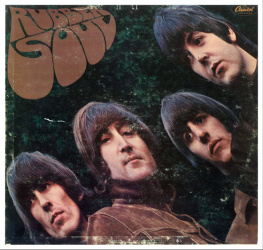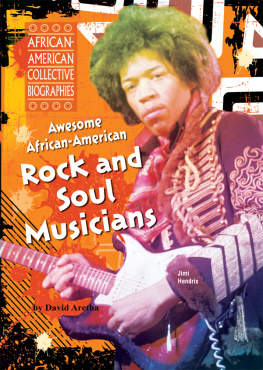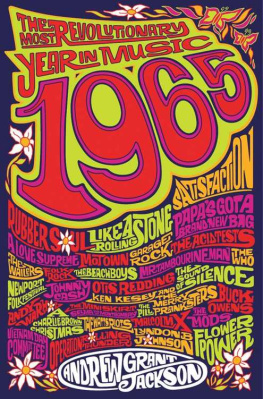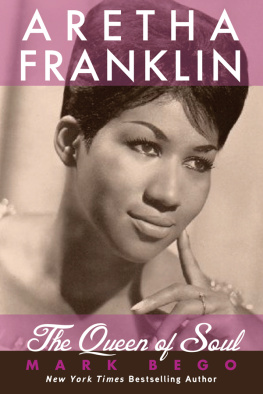
The author and publisher have provided this e-book to you for your personal use only. You may not make this e-book publicly available in any way. Copyright infringement is against the law. If you believe the copy of this e-book you are reading infringes on the authors copyright, please notify the publisher at: us.macmillanusa.com/piracy.
contents
For Charles Runnette and for Allyson Pimentel
Foreword
A Song for Me
by Nikki Giovanni
This is what I remember: Aretha Franklin was booked to perform at the Cincinnati Cotton Club for one whole week. I didnt have the money to go, nor was it likely my parents would let me if I could earn the ticket price, but it was nonetheless exciting. She cancelled the day after she arrived. They said she was sick. We learned later she was pregnant, which is not a sickness. I am just about a year younger than Lady Soul. I thought they simply should have said: Aretha Franklin is expecting and is going home to be with her family. But those were the daysthe early 1960swhen things like that took on other meanings. Aretha had written, What is romance without the one you love? I was sixteen. I just wanted to know what is romance.
It must have been the blues that made Aretha mean so much to everybody. Maybe she caught a cold when she was an infant and her mother or grandmother rubbed her chest with oil of cloves. Something like that must have given her voice that smoldering quality. Maybe it was the jowl bacon in the pinto beans with a side of cold water corn bread, or maybe fried fish with hush puppies. There had to be okra cause she lived with Mahalia Jackson, so there must have been stewed okra with tomatoes or just good old collard greens with a splash of hot vinegar. Fried chicken. I couldnt have forgotten the fried chicken. Try Mattys, she said. And we all did.
Ellis Haizlip, the producer of Soul!, the first variety Black television show on PBS, invited me to go see Aretha at the Apollo Theatre in Harlem. Honi Coles was the official greeter then. I recognized him immediately but was surprised that he greeted me by name. Aretha brought the house down! After the show Ellis asked if Id like to meet her. He knew I had written a poem and asked, Did you bring a copy for her? Absolutely not! was my response. What if she didnt like it? What if she thought it was an intrusion? What iftoo many things that would make me very nervous. I have, I must admit, only limited social skills anyway. What would I say to her? And she to me? I have never written poetry about people I know because I never have wanted anyone to think I would take advantage of access. Only three people that I have written about have I actually met. But I couldnt not go backstage. I would rather have died to have her think I was there and so disrespectful. So I met Aretha.
When she played Lincoln Center a few years later I decided to give myself an early birthday present. I purchased a block of tickets: three in the front, three in the middle, and three in the back, like a Rubiks Cube. As the day of the show came I started to feel guilty. I had started out not wanting anyone to sit next to me, but then it dawned on me that Aretha would look outthese were orchestra seats in the Philharmonicand see empty seats and might think people either hadnt bought the tickets or didnt bother to come. I gave the three back seats to my students but kept the rest. I just couldnt resist it. She came out cooking! Then you know how after that second number or so she took a breath. She walked to the edge of the stage and said, Hi, Nikki. Then went on with the show. I was so totally thrilled! Im still all smiles about it.
Arethas youngest boy and my only son both attended Emerson when she lived on the Upper East Side. We were West Siders at Ninety-second and Columbus. The bus went through the park at Ninety-third or Ninety-fourth, coming out almost exactly at Emerson. Thomas wasnt really old enough to ride the bus by himself, but some days I would allow him to ride by himself by calling the school and asking them to look out for him. Most days either Debbie, his baby-sitter, or I would take him. One day, when I was with him, the headmistress asked if she could get some advice from me. She wanted to do a fund-raiser and wondered if Aretha would be a part of it. My advice: Ask her. I didnt know Aretha, I had only met her, but her commitments were pretty clear. She had offered to pay Angela Daviss bail. She had been a steady foot soldier for Dr. King. She is one superstar who has, it seems to me, always stayed on the case. Sometimes in front, sometimes behind the scene, but always there.
Then one evening my phone rang. Nikki, this is Aretha. Are you busy? First of all, there are two female voices that are totally distinct: Arethas and Lena Hornes. They cant disguise their voices even if they want to. I grabbed a cup of coffee to chat. She was back at the Apollo and I had, as always, seen and loved the show. Why didnt you come backstage? I didnt want to be in your way. Did I play the piano too much? Should I keep it in the act? You could play the piano all night. I wish youd make an album of only piano playing. (I still would love that.) For a brief time, tied together by what Carolyn Rodgers calls the witch cord, we were two career women trying to make sense of it all. I talked with her only once after that. A magazine editor and I were at her home to interview her. Her people were there being very protective, and I sort of laughed to myself because Im very protective of Arethas gentle and fragile spirit, too. She showed us her home and we settled in the kitchen to talk. But there was some sort of fog, some sort of heavy blanket that wouldnt let the words come through. Writers are not to be trusted. We can sometimes turn words around, tie meanings to events that are not accurate. I didnt want to see Aretha not able to relax so we soon left, writing the article more from press releases than from what she had said.
I was in Detroit recently and saw Arethas cousin Brenda and remembered, with her, the evening we were onstage after the show was over and the audience had gone home. Aretha sat down at the piano and began singing. Brenda offered background vocals. I was just there listening: to a song for me.
I dont know anybody that can sing a song like Aretha Franklin. Nobody. Period.
RAY CHARLES , 1968
one
The Voice of Black America
Last fall I went to an Aretha Franklin concert at Radio City Music Hall in New York City, not without some trepidation. As a lifelong Aretha fan in possession of thirty-eight of her albums, I knew to be wary: Although her almost otherworldly vocal prowess was inarguable, her shows, over the years, had become maddeningly hit-or-miss. The singer was notorious for showing up with a corps of luridly attired dancers, Aretha herself in some sort of impossibly unflattering get-up, looking more like a Las Vegas nightclub chanteuse as MAD TV might conceive one than like the universally revered Queen of Soul. Her song selection could be dubious and might rear its head at any moment, consigning her audience to an evening of treacle like People and The Greatest Love of All, rather than soul stalwarts like Do Right Woman and Chain of Fools. Other times, Aretha would show up at the theater just flat-out not in the mood, her desire to get offstage palpable, her devotion to the crowd not the equal of theirs to her.
But this time, Aretha was present . And when Aretha is therecommitted, impassioned, emotionally involved in her songstheres nothing else like it in all of music. Her sublime vocalism, almost preternaturally full of feeling and operatic in size, is supported by a kind of immaculate musicality and innate sense of improvisational rightness. As her longtime producer Jerry Wexler puts it, There are three qualities that make a great singerhead, heart, and throat. The head is intelligence, the phrasing. The heart is the emotionality that feeds the flames. The throat is the chops, the voice. Ray Charles certainly has the first two. Aretha, though, like Sam Cooke, has all three qualities. Her gift seems to have sprung, like Minerva, full-fledged from Jupiters head.


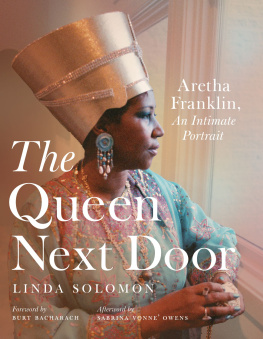
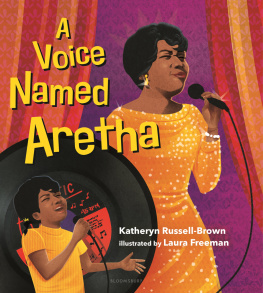
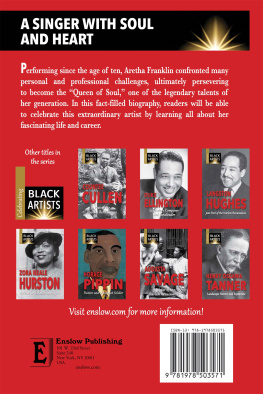
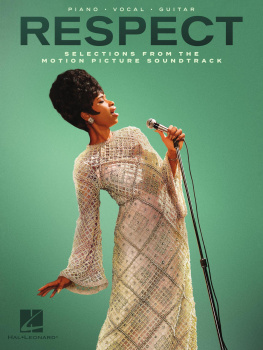
![Lambley - And the Band Begins to Play: [Part6 The Definitive Guide to the Beatles Rubber Soul]](/uploads/posts/book/213742/thumbs/lambley-and-the-band-begins-to-play-part6-the.jpg)
